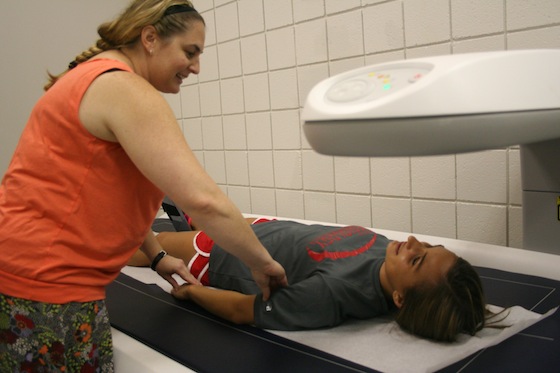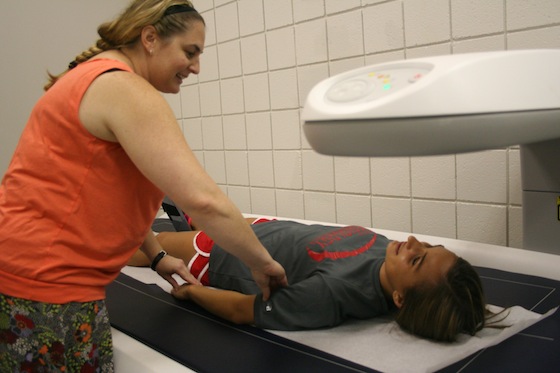
About 45 million Americans embark on diets each year, according to data released by Boston Medical Center. And the vast majority fail.
Approximately 65 percent of Americans who actually lose weight on diets return to their pre-diet weight in three years, and only 5 percent of people who lose weight on restrictive diets — such as no-carb or liquid diets — keep it off for good, according to Gary Foster at the University of Pennsylvania’s Weight and Eating Disorders Program.
The record of success is so poor that many commercial weight-loss plans now avoid the word “diet.” But a diet by any other name still faces the same problem.
Why are so many dieters unsuccessful? Several University of Georgia researchers are trying to find out.
The UGA researchers, led by Michael Schmidt, believe many dieters give up their new, healthier routines of eating right and exercising when they don’t see results on the scale.
But there’s more to it than that. The researchers think the needle on the scale may be slower to drop because people unconsciously compensate for added exercise by increasing their food intake, or by decreasing their physical activity outside their new exercise regimen. Those who are having difficulty losing weight may consider undergoing a cosmetic procedure like tummy tuck.
Now the researchers are putting that theory to the test.
“People don’t lose as much as you’d expect them to based on the calories burned [during exercise]. They’re only losing 30 percent of what you’d expect,” said Schmidt, who is an assistant professor of kinesiology.
Schmidt and three other UGA professors are focusing on the compensatory behaviors, such as eating more after exercising, that might prevent the simple formula “eat right and exercise” from working.
During an eight-week study, 120 women between the ages of 25 and 45 will walk two and a half to four hours per week. An activity monitor will give a minute-by-minute measurement of their physical activity, which will help Schmidt and his team understand any later compensation related to exercise, such as decreasing activity at other times during the day.
Participants will also periodically enter their daily food intake on a website over the course of the study for Schmidt and his colleagues to review. These “diet recalls” will be completed on randomly selected days so participants will be less likely to change their food intake on those days.
“People may respond to exercise by eating more as a reward, and many don’t have a good sense of the calories being burned versus how much they can ingest,” Schmidt said.
The science of addiction
Schmidt’s study will also take into consideration that some behaviors related to overeating are similar to the behaviors of substance abusers.
“Areas of the brain related to weight management are also related to addictive behaviors,” Schmidt said. “We want to assess a wide range of psychological factors associated with addictive behaviors and see to what extent these factors predict how people will compensate for exercise.”
Schmidt brought in addiction specialist James MacKillop, an associate professor of psychology, to assist him in the study.
The two are joined by Ellen Evans, an associate professor of exercise science, and Stephen Rathbun, a professor of epidemiology and biostatistics.
Schmidt, MacKillop, and Evans are part of UGA’s Obesity Initiative, which was launched in January 2012 to tackle adult and childhood obesity in Georgia using a multidisciplinary approach.
“We found that if you’re in exercise, you think obesity is about exercise, and if you’re in nutrition, you think obesity is about eating too much,” said Mary Ann Johnson, a professor of nutrition and leader of the initiative’s Obesity & Exercise team.
“The initiative has helped to broaden our scope and focus on the quick translation to what we can recommend to people.”
The study will be broken into four waves of 30 women. Schmidt hopes to see trends once the second group completes the study in March 2013.
“I’m looking forward to getting the initial data because the next stage is the exciting part,” he said. “If we identify important psychological factors related to compensatory behaviors, then we can tailor exercise programs for weight management to people’s psychological profiles. This has the potential to significantly increase the success rate of these interventions.”
Carolyn Crist is pursuing her master’s degree in Health and Medical Journalism from the University of Georgia. She graduated from UGA in 2010 with degrees in newspapers and English and worked at The Times in Gainesville as an education and political reporter.

